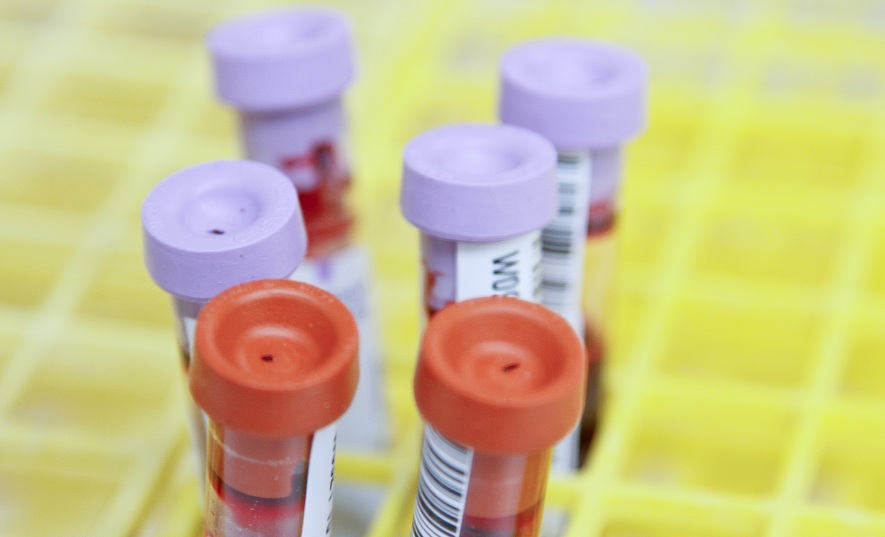December 21, 2022: “Pfizer announced that the U.S. FDA has accepted for review a New Drug Application (NDA) for etrasimod for individuals living with moderately-to-severely active ulcerative colitis (UC).
The FDA’s decision is expected in the second half of 2023. The European Medicines Agency (EMA) has also accepted the Marketing Authorization Application (MAA) for etrasimod in the same patient population with the decision anticipated in the first half of 2024.
Etrasimod is an oral, once daily, selective sphingosine-1-phosphate (S1P) receptor modulator designed for optimized pharmacology and engagement of S1P receptors 1, 4, and 5. In addition to UC, it is being investigated for a range of other immuno-inflammatory diseases.
UC is a chronic and often debilitating condition that affects an estimated 3.8 million people in North America and Europe.
Symptoms of UC can include chronic diarrhea with blood and mucus, abdominal pain, and urgency.
UC can have a significant effect on work, family, and social activities. There is a need for additional advanced therapeutic options in UC that are oral, effective, and have a favorable risk-benefit profile.
“Ulcerative colitis can substantially impact the day-to-day lives of people living with this chronic and often debilitating disease, and many patients never achieve nor maintain remission on today’s therapies,” said Michael Corbo, PhD, Chief Development Officer, Inflammation & Immunology, Pfizer Global Product Development.
“We believe that etrasimod, if approved, has the potential to be a best-in-class, first-line advanced therapy for people living with moderately-to-severely active ulcerative colitis, based on its clinical profile.”
These submissions were based on previously announced results from the ELEVATE UC Phase 3 registrational program (ELEVATE UC 52 and ELEVATE UC 12) that evaluated the safety and efficacy of etrasimod 2 mg once daily on clinical remission in UC patients who had previously failed or were intolerant to at least one conventional, biologic, or Janus kinase (JAK) inhibitor therapy.
Both randomized, double-blind, placebo-controlled studies achieved all primary and key secondary endpoints, with a safety profile consistent with previous studies.
About ELEVATE UC 52 and ELEVATE UC 12
ELEVATE UC 52 and ELEVATE UC 12 are pivotal trials that are part of the ELEVATE UC Phase 3 registrational program.
ELEVATE UC 52 is a randomized, double-blind, placebo-controlled trial that utilized a treat-through design comprising of a 12-week induction period followed by a 40-week maintenance period.
Beginning at week 12, all patients could continue their randomized treatment; patients whose disease had not improved or had worsened compared to baseline could discontinue and, if eligible, enroll in an open-label extension study.
The primary objective of this trial was to assess the safety and efficacy of etrasimod 2 mg once daily on clinical remission after both 12 and 52 weeks. The primary endpoint is based on the 3-domain, modified Mayo score (MMS).
In ELEVATE UC 52, clinical remission was 27.0% for patients receiving etrasimod compared to 7.4% for patients receiving placebo at week 12 (19.8% differential, P≤.001) and was 32.1% compared to 6.7% at week 52 (25.4% differential, P≤.001).
Statistically significant improvements were attained in all key secondary endpoints, including endoscopic improvement, symptomatic remission, and mucosal healing at weeks 12 and 52, and corticosteroid-free remission and sustained clinical remission at week 52.
ELEVATE UC 12 is a randomized, double-blind, placebo-controlled trial to assess the efficacy and safety of etrasimod 2 mg once-daily in subjects with moderately-to-severely active UC.
The primary objective of this trial was to assess the safety and efficacy of etrasimod on clinical remission at 12 weeks assessed by the FDA-required, 3-domain, MMS.
In ELEVATE UC 12, clinical remission was achieved among 24.8% of patients receiving etrasimod compared to 15.2% of patients receiving placebo (9.7% differential, P=.0264).
All key secondary endpoints were met at week 12, including endoscopic improvement, symptomatic remission, and mucosal healing.
In ELEVATE UC 12, a similar proportion of patients experienced treatment-emergent adverse events (AEs) between etrasimod 2 mg and placebo treatment groups, while in ELEVATE UC 52, it was higher in the etrasimod 2 mg group compared to placebo. The proportion of patients experiencing serious AEs was similar between treatment groups in both trials.
The most common treatment-emergent AEs in 3% or more of etrasimod-treated patients and greater than placebo up to week 52 in either trial were headache, worsening of UC, COVID-19 infection, dizziness, pyrexia, arthralgia, abdominal pain and nausea.
There were no reports of bradycardia or atrioventricular block as serious AEs. Data support initiation of etrasimod treatment does not require complex up-titration regimen.
Nearly two-thirds of patients in ELEVATE UC 52 and ELEVATE UC 12, respectively, were naïve to biologic or JAK inhibitor therapy.”


